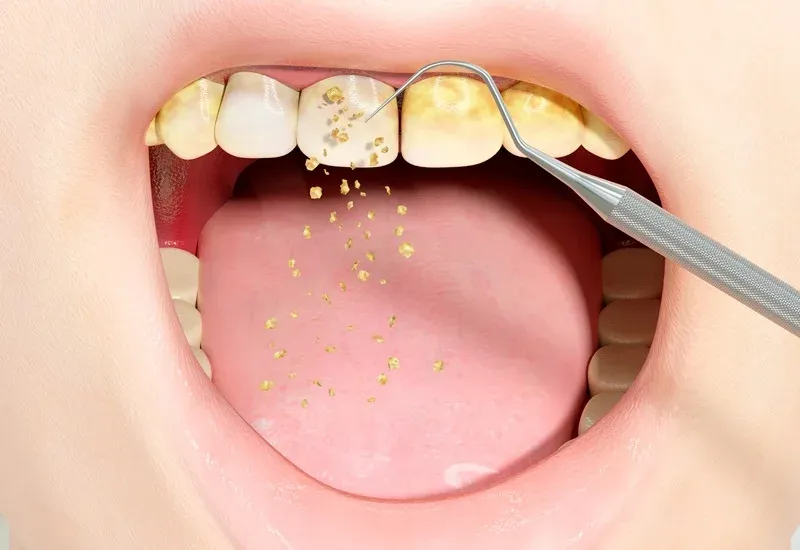Understanding Dental Cleaning and Examinations

by Dr. Uvika Singh
18 December 2024

Your Guide to a Healthy Smile
Taking care of our teeth is essential for maintaining a healthy mouth and overall well-being. A bright smile not only boosts confidence but also reflects our health. One of the best ways to ensure our dental health is through regular dental cleaning and examinations.
Let’s get into what dental cleaning and examinations involve, why they are important, and what you can expect during your visit to the dentist.

Why Are Dental Cleanings and Examinations Important?
Regular dental cleanings and examinations are vital for several reasons:
Prevention
The primary goal of dental cleanings is to prevent tooth decay and gum disease. By removing plaque and tartar, you can avoid more serious problems down the line. Regular cleanings drastically reduce the chances of needing fillings or more invasive procedures later on.
Early Detection
Regular examinations help catch issues early. The quicker a problem is identified, the easier and less expensive it is to treat. For instance, catching a cavity while it is still small can save you from needing a root canal in the future.
Maintaining Overall Health
Good oral health is linked to overall health. Poor dental hygiene can lead to conditions like heart disease, diabetes, and respiratory infections. Regular visits to the dentist can help keep your mouth and body healthy. Maintaining oral health can improve your quality of life and longevity.
Education
Dental visits provide an opportunity to learn about proper oral hygiene practices. Your dentist can offer tips on brushing, flossing, and diet to help you maintain a beautiful smile.
They can tailor advice to your specific needs. It helps in ensuring you have the best strategies for your oral care.
What is Dental Cleaning?
Dental cleaning is a professional cleaning procedure performed by a dental hygienist or dentist. The goal of dental cleaning is to remove plaque and tartar from your teeth. Otherwise, it can build up over time and lead to cavities and gum disease.
The Steps in a Dental Cleaning
Dental cleaning procedure depends upon different steps. Here are the key steps involved in a dental cleaning process:
Initial Examination
Before any cleaning begins, the dental hygienist will take a look at your teeth and gums. They will check for any signs of cavities, gum issues, or other abnormalities. This step is crucial because it helps the hygienist understand your oral health before proceeding.

Plaque and Tartar Removal
Using specialized tools, the hygienist will carefully scrape away plaque and tartar from your teeth. Plaque is a soft, sticky film of bacteria that forms on your teeth, while tartar is hardened plaque that can only be removed by a professional.
This part may feel a bit uncomfortable, especially if you have not had a cleaning in a while, but it should not be painful. The hygienist will pay special attention to areas that are hard to reach, like between your teeth and along the gumline.
Expert Flossing
Once the polishing is done, the hygienist will floss your teeth to remove any debris that might be stuck between them. This is also a good opportunity for you to ask questions about proper flossing techniques. They can demonstrate the best way to floss, ensuring you are equipped with the right tools for at-home care.
Rinsing
Finally, you will rinse your mouth to wash away any remaining toothpaste or debris. This step leaves your mouth feeling fresh, and it is often a relief after the cleaning process.
Fluoride Treatment
Sometimes, your dentist may recommend a fluoride treatment after cleaning. Fluoride helps strengthen your teeth and can prevent cavities. This treatment usually involves applying a gel or foam to your teeth and you will be asked to avoid eating or drinking for a short period afterward.
What are Dental Examinations?
A dental examination is a thorough check-up of your oral health. It usually occurs during your cleaning visit, but you may also have separate appointments for exams. The goal is to assess the health of your teeth, gums, and mouth, ensuring everything is in tip-top shape.
What Happens During a Dental Examination?
Here is what you should expect during a dental examination:
Medical History Review
Your dentist will ask about your medical history, the medications you are taking, and any concerns you have about your oral health. It’s important to be honest and thorough here, as certain health issues can impact your dental care.
Visual Inspection
The dentist will visually inspect your teeth and gums for any issues, such as cavities, gum disease, or signs of oral cancer. This inspection can help identify problems early, which is crucial for effective treatment.
X-rays
Depending on your age and dental history, your dentist may take X-rays to see what is happening beneath the surface of your teeth. X-rays help identify problems that are not visible to the naked eye, such as hidden cavities or bone loss. This part of the examination is quick and painless, and it provides valuable insight into your dental health.
Discussion
After the examination, your dentist will discuss their findings with you. They will explain any issues that were found and recommend treatments if necessary. This discussion is a great opportunity for you to ask questions and understand your dental health better.
How Often Should You Visit the Dentist?
Most people should visit the dentist for a cleaning and examination every six months. However, some individuals with specific dental needs or conditions may need to visit more frequently. Your dentist will help determine the best schedule for you based on your oral health.
If you have braces, a history of gum disease, or other issues, you might need to go every three to four months.
Tips for Preparing for Your Dental Visit
- Ask Questions: If you have concerns about your dental health or specific procedures, don’t hesitate to ask your dentist. They are there to help you understand your health and provide the best care possible.
- Practice Good Oral Hygiene: Maintain a good oral hygiene routine at home by brushing twice a day, flossing daily, and using mouthwash. This prepares your mouth for the cleaning and shows your dentist that you are committed to your oral health.
- Stay Relaxed: Many people feel anxious about dental visits. Try to stay calm by practicing deep breathing or bringing a friend for support. Some dental offices even offer relaxation techniques or music to help ease nerves.
- Plan for After Your Visit: If you are having a procedure done, such as a fluoride treatment or deep cleaning, plan for some downtime afterward. It is a good idea to avoid hot or cold foods for a few hours, as your teeth may be sensitive right after a cleaning.
Get Expert Dental Cleaning and Examination Services from Advanced Dental Concepts of Oakland.
Dental cleaning and examinations are essential parts of maintaining good oral health. Regular visits to the dentist can help prevent problems, catch issues early, and keep your smile bright and healthy.
If you are looking for a caring and professional dental team, look no further than Advanced Dental Concepts of Oakland. Our experienced staff is dedicated to providing top-notch dental care tailored to your needs. Don’t wait. Schedule your appointment today and take the first step towards a healthier smile.
Contact your dentist today in Oakland, Dr. Uvika Singh, at Advance Dental Concepts Oakland, to learn more about Toothache.
Share This:
Disclaimer
*This media/content or any other on this website does not prescribe, recommend, or prevent any treatment or procedure. Therefore, we highly recommend that you get the advice of a qualified dentist or other medical practitioners regarding your specific dental condition. *

Subscribe to Our Newsletter
Stay informed about the latest dental news, tips, and promotions by subscribing to our newsletter. Enter your email address below to join our community of smile enthusiasts.
